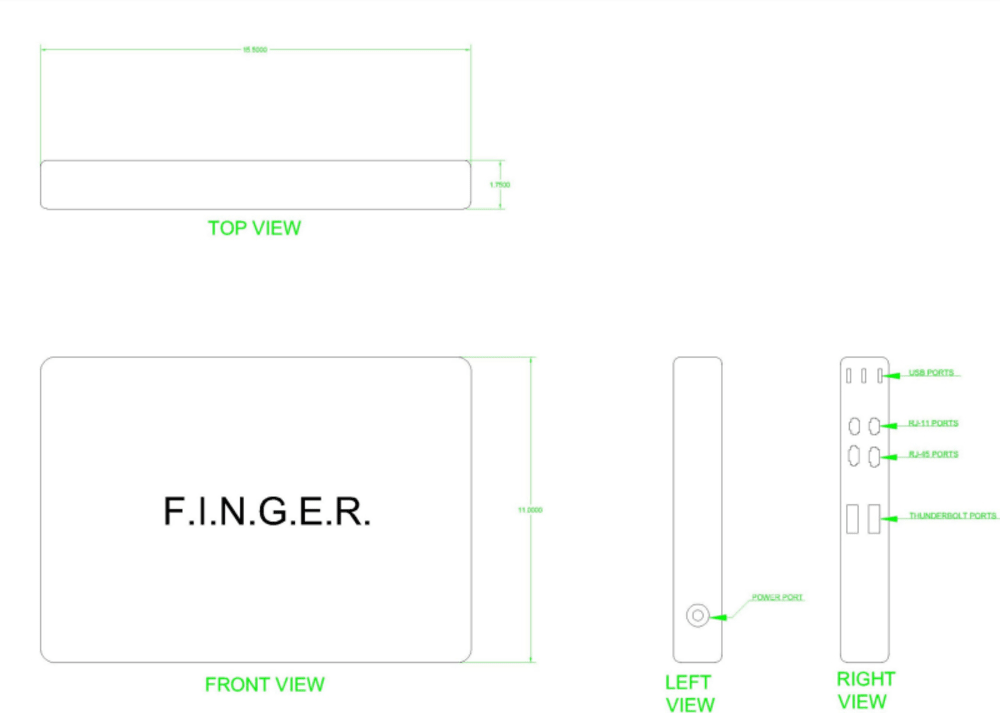As recent events in Tunisia, Egypt, Libya, and Japan have shown us, being able to communicate with the outside world is incredibly vital. the Flexible INternet Globally Enabled Router (or F.I.N.G.E.R.) seeks to address this by providing a compact unit designed to connect to the internet using any means currently available. It contains a variety of antennas, modems and routers so that it can enable the user to do an "end run" around downed phone lines, overloaded cell networks, or things like the "Great Firewall of China" and can even use "mesh networking" and MANET networking if no other connections are available.
Low power demands, compact size, and lightweight make it easy to be carried into disaster areas or smuggled into a hostile nation like North Korea. For developed nations, it could be used to create ad hoc networks quickly and relatively inexpensively, or to provide internet access in areas currently unserved by ISPs. (A portion of the cost for satellite internet access for areas such as North Korea or other nation cutoff from the net could be underwritten by a small fee added to the amount normally charged to users in developed nations for satellite services.)
Users could connect to the F.I.N.G.E.R. by standard cables such as USB and Cat 5 or wirelessly (which would allow the device to be hidden from prying eyes more easily), and a variety of encryption protocols to protect users from people trying to "sniff" the wireless signals to and from the device.
While initial costs per unit could be high, it is hoped that cellphone network providers would see the value in using the devices to improve their coverage in metropolitan areas, where permits for large antennas can be difficult to obtain, and purchase the devices in large quantities, thus enabling economies of scale to reduce the individual cost of each unit. Additionally, enabling the use of the device as a femtocell will expand the number of potential users, further helping to drive down costs.
Mesh and MANET networking would allow developing nations to rapidly build out internet capabilities in areas presently unserved by conventional means. As individuals have been able to create a growing economy in their village by renting cellphones or doing money transfers via cellphones, so too would the F.I.N.G.E.R. enable greater economic development in impoverished areas. Coupled with programs such as the One Laptop Per Child and others that seek to give low-cost computers to those in the developing world, it can be used to aid in the education of a new generation. Providing them with the knowledge that can help them gain employment in the wider world or improve things such as farming methods in their home village.
The true value and impact of the F.I.N.G.E.R. is difficult to predict. Still, based on the explosive growth of information in the wake of the internet, it is certain that the benefits will be numerous.
Like this entry?
-
About the Entrant
- Name:Brian Drake
- Type of entry:individual
- Software used for this entry:AutoCAD
- Patent status:none

